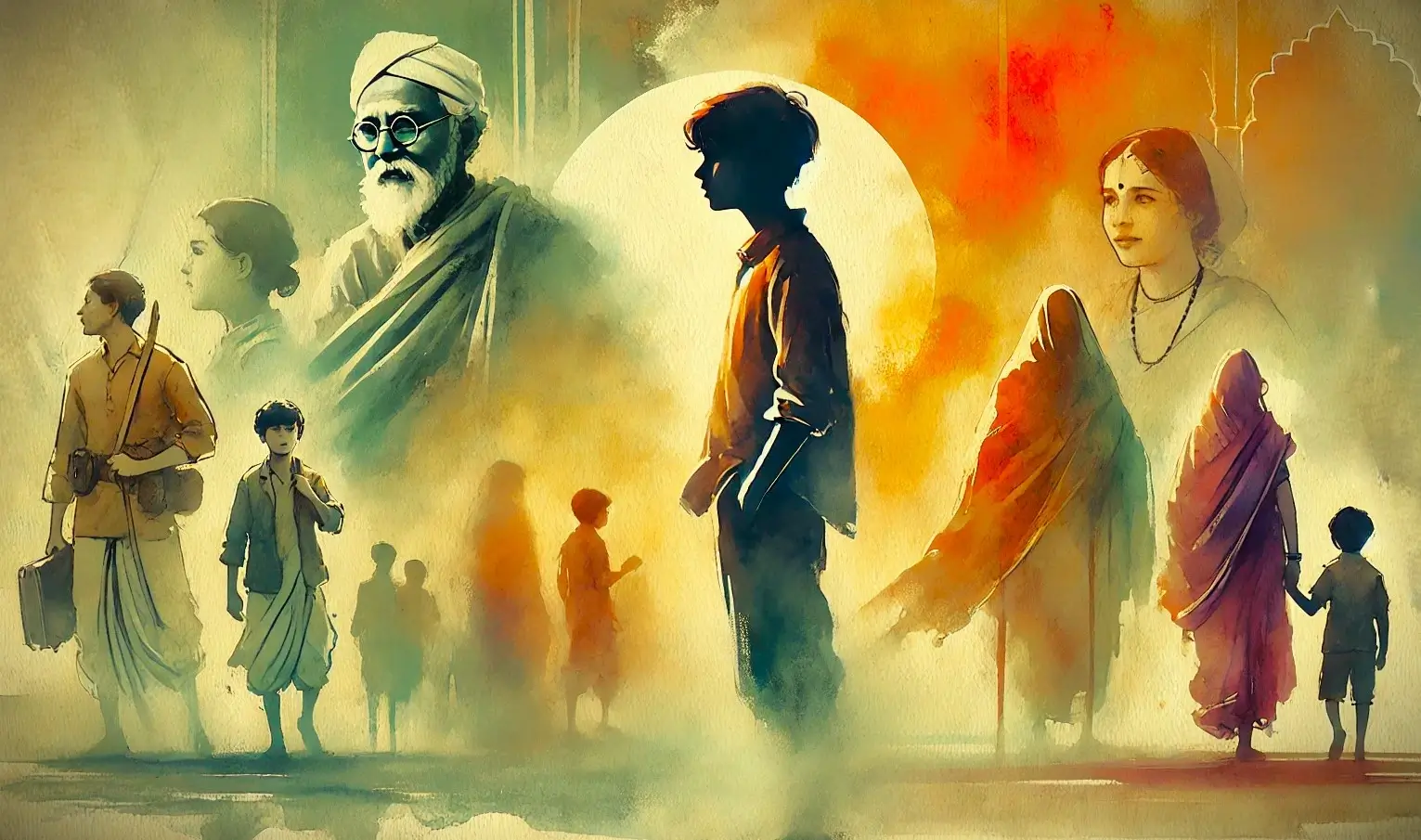Story Analysis of The Homecoming, by Rabindranath Tagore

Shashank Shetty
Comment section
You need to be a subscriber to comment
08 Oct, 2024
Authored by Rabindranath Tagore, The Homecoming is a short story set in a small countryside village. The story begins by introducing the lead role, Phatik Chakravorti, who is a mischievous young lad in contrast with his brother, Makhan, who was his mother's dear boy. Phatik also had his gang, of which he was the tyrant leader. He was a youth of fourteen who was self-conscious and wanted to maintain his dignity and integrity in front of his followers. He used to get irked and enraged at small matters, which are all just consequences that come with his age. We can see that his mother is very much annoyed by him, being under the impression that he was a big nuisance. Coincidentally, his uncle, who had returned from Bombay, offered to take Phatik with him to Calcutta and tutor him with his three kids. His mother was relieved to get rid of this mischief and he was also joyed to leave with his uncle.
But his aunt thought that Bishamber, his uncle, had made a thoughtless decision and was irritated by the inclusion of a new member. She opined that nothing was worse than a clumsy and awkward adolescent boy because he was neither a child nor a man. She mistreated, abandoned and neglected Phatik on every occasion. She forgot that she too went through the same phase in her life and failed to stand in his shoes. During this point, the author verbosely describes the hasty and fumbling mind of a 14-year-old boy.
We also come to know that the writer is trying to tell us that this is the age when his heart is delicate; and that he is seeking love and attention which he didn't get from his disliking aunt. He felt very uncomfortable in the restricted environment of his aunt's house. His mother, being a single parent, had not only the responsibility of being a caring mother but also to stand in as his father to preserve and safeguard him. But she was successful at neither of those and failed to cognize of her son's feelings.
He started to miss his village, his companions over whom he ruled and on the inside; he was craving his mother's love, even though he sensed that she had a prejudice in opposition to him. He felt like a fish out of water in the cramped surroundings of Calcutta. But, it is not his uncle to be blamed as he just wished for a better future for Phatik. He tells Phatik that he can go home in the holidays.
One night, while returning from his school, he had a severe headache and started to feel that he was going to have a malarial attack. He became afraid that his aunt will get more infuriated and treat him as a burden and felt despised against himself. Thus, he took a hasty decision to walk back home. But the police brought him back and was treated by a doctor at his uncle's home, who told that his situation was concerning. The next day, his mother arrived and started to moan in agitation. But, she was late. He passed away after saying that the holidays have come, according to me, inferring that he was not only about to leave his uncle's house but the whole world.
Lack of recognition and love for a young boy just because he was a little too mischievous, which is how a typical teenager would behave, indirectly took the life of a young fellow who had an entire life ahead of him. I would like to state that my takeaway is that we should try to understand what others feel and relate to others' situations before having a preconception about somebody. We should perceive what people are seeking and do what we can.
Presented here is a very succinct analysis of a story written by Rabindranath Tagore in the 1890s, The Homecoming. This was written for my school competition a few years back. I don't know what all the fuss was about, but many were impressed by the usage of words! I mean....I use online tools to find synonyms.....but sure, I'll take the credits 😁 Here is a link to the original story if you would like to read it.

09 Oct, 2024